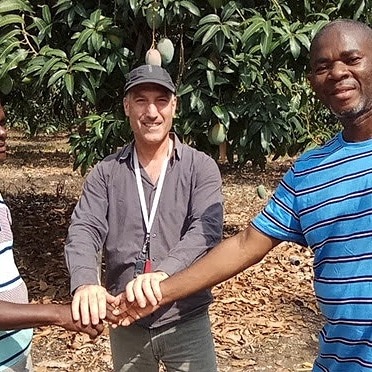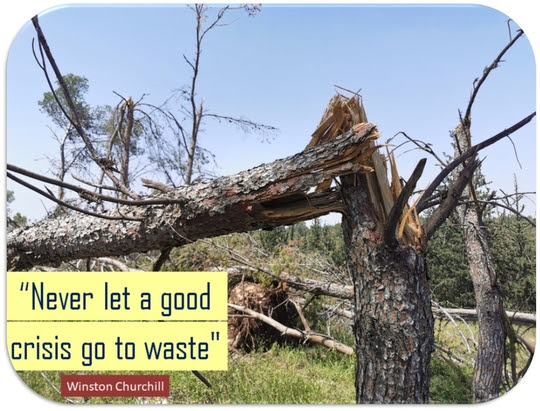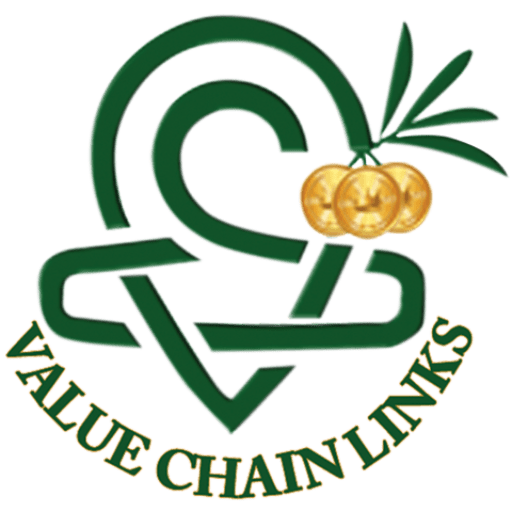ARE YOU SURE YOU KNOW WHERE THE MONEY AND OPPORTUNITIES ARE IN AGRIBUSINESS?

BY Dr. Nimrod

| A crisis is the best time to find and utilize the most attractive business opportunities. Why? Small problems create small opportunities, while big problems create big opportunities. If small fish are sufficient for you, stay close to the shore. However, when you are after the big juicy and more profitable fish, then you must enter deep water. Translate it to ‘businessman language,’ and you will not hear a businessperson asking about the Solution before making sure there is a big Opportunity, meaning a big Problem ahead. In the head of a sharp businessperson, a Big Problem, like a big fish, automatically translate into a big Opportunity. The Solution, or catching the fish, comes later. CRISIS, AGILITY, AND OPPORTUNITIES For business people, a crisis helps to discover problems, as the low tide reveals the rocks that hide during the high tide.  |
| Broken trees after a storm. Is it a Problem or an Opportunity? The answer depends on your state of mind |
Big crises allow business people to do best what they love most, which is turning it into their benefit by identifying a Big Problem, and after that, to provide a Solution, which will benefit all involved.
So does the COVID-19 crisis help uncover the big problems lurking on ordinary days below the surface.
Three critical agri-business related problems, revealed by the COVID-19 crisis –
1. The centrality of agriculture in the resilience of a state.
2. The fragility of value chains and logistics involved in transportation.
3. Leadership and management in times of crisis.
Note, the above problems were there before COVID-19!
The recent crisis just helped to expose them to the naked eye.
AGRICULTURE AND STABILITY
The COVID-19 crisis has clarified beyond doubt that without a strong local agriculture sector, complimentary by the ability to reliably import/export agri-produce, there is no food, no stability, no security, and no independent economy.
It is possible to get by without telephones, and even without cars and traveling.
But it is impossible to get by without agriculture and stable food supply.
At the same time, let’s keep in mind that no country produces all of its nutritional needs.
The Import-Export of agricultural produce is a good part of globalization and will continue and grow and to bring benefit to the emerging markets.
NOT ALL VALUE CHAINS ARE EQUALLY IMPORTANT
The COVID-19 crisis has exposed the sensitivity of the value chain to material changes.
At the height of the crisis, a simple fact became bright, people and even entire cities can survive for a long time without the value chain of traveling, and without the value chain of trading with goods, or at least most goods.
But without an adequate and stable food and agriculture value chain, it is impossible to survive beyond a few days. Elementary.
Therefore, even at the height of the crisis, farmers continued to move and work as usual.
I do not suggest thinking in terms of “we will produce all the food for ourselves.” This would be costly and improper in a world that will continue, being led by globalization.
Instead, it would be more practical to think better about ways to secure and improve trade and logistics routes for import and export, even in days of unforeseen crises.
Once you prepare for an ‘unforeseen crises,’ then it turns from ‘unexpected’ to ‘expected.’
A few days ago, a journalist called and asked me how I am dealing with the COVID-19 crisis. I asked, “What crisis? When you aim high, as Biofeed does, you always challenge yourself, and your ‘normal routine’ is like the ‘crisis routine’ for others. By the way, since the outbreak of COVID-19, we have more new business than ever before.”
LEADERSHIP AND MANAGEMENT
In days of peace and tranquility, words of encouragement and inspiration are enough to consider a person to be a Leader or a good Manager.
Fighter brotherhood is measured on the battlefield. So is leadership and management, are examined primarily in times of crisis.
Crises help to discover the true size of leaders and managers, including business managers.
PROBLEM
Let’s sum up.
Many FARMERS produce food. They continued to do so in a stable and orderly manner throughout the days of the COVID-19 crisis.
Many CONSUMERS buy fresh and processed agricultural produce. At the height of the crisis, the demand for fresh, healthy, agricultural produce only increased.
Only a few TRADERS deal with bridging the business gap between the Farmers and the Consumers.
There are even fewer TRADERS capable of bridging the gap between the local Farmers and the Consumers in the global (export) markets.

There are many Farmers and many Consumers, but few International Traders. |
Bang!! We just hit a wall. Did you feel it?
NOT EFFECTIVE AGRICULTURAL EXPORT TRADING.
This is not a small bump in the road. It is a huge rock that blocks any movement, or at least slows down and makes it very difficult.
What do you see in front of you, a Problem or an Opportunity, which can become a Goldmine?
We know it for years, international Trading with agri-produce is a considerable challenge that not many like to face, much due to the increasing phytosanitary standards.
Now, imagine how it is during a health-oriented crisis and even higher phytosanitary demands.
That is an apparent HUGE Problem. A problem that affects any farmer, any consumer, any company, any country, and mainly agrarian states.
DO YOU SEE THE OPPORTUNITY?
There are hundreds of millions of farmers who wish to sell their produce to billions of consumers who want to buy it. It is thanks to the traders that this gap is bridged.
But in some cases, the gap is not bridged by the traders, or at least not good enough. In such cases, the farmers and the country alike suffer the consequences.
Traders in developed countries know that they can often get better prices at the export markets, and so they export.
Unlike those traders above, traders in developing countries often miss the contacts, skills, know-how, and experience to reach export markets effectively.
The result is that they got used to trading only or mostly in the limited local markets of, which demand – low quality, and offer in return – low price, and low income.
In many cases, such a business approach, led by the notion that export is beyond our capability, is translated to a lack of foreign currency, poverty, and hunger.
If you see a BIG problem in the above story, then you see a BIG opportunity ahead.
NOT ALL TRADERS ARE THE SAME
Trading in the local markets holds a lower level of challenge, lower risks, and smaller opportunities.
Almost opposite of that is trading in the global markets, and even more extreme is trading in premium markets.
However, the reward for those who challenge the risk, and manage to enter the export markets, and even better, the premium markets, is beyond imagination with endless opportunities.
If we are already discussing global trading (export), then the most challenging sub-domain is trading with fresh produce.
Among fresh produce, the most difficult is trading with high-value crops for the premium markets, for example, Mangos and Avocados.
Those crops are suffering from quarantine pests, such as fruit flies, and hence are often under export ban due to phytosanitary considerations.
“I see. So export of high-value crops to premium markets is the most problematic domain for agri-export, and the most challenging!?” TRUE.
This is precisely why you should see this domain as the most promising and harboring the greatest and fastest economic growth potential.
STRENGTHENING INTERNATIONAL TRADING CAPABILITIES
When a country improves its traders’ ability to deal with the global markets, not to mention the premium markets, then the state will see many benefits in the short and long term.
Higher volume of produce that is being traded, and for a higher price, means better income to farmers, better income to the entire value chain, and a growing foreign currency flow to the state account.
Interestingly, in the COVID-19 crisis, the prices of fresh produce, which is also considered ‘healthy,’ rose at a double-digit rate, reminding the rise of medical product prices.
When we think of it, then there is no place to be surprised.
“The size of the global middle class increased from 1.8 billion in 2009 to about 3.5 billion people in 2017 — more than half of the world population and is expected to grow to some 4 billion by 2021” [>><<].
A growing middle class means higher health, social, and environmental awareness.
During a health crisis, the middle class reaches the core values of human society – health (e.g., healthy food), environment, and social trust.
GROW YOUR OPPORTUNITIES
It is clear that this is a great time to become involved in export trading of fresh agricultural produce, and if possible, in the premium high-value markets.
Keep in mind, the greater the challenge, the greater the opportunity, and the gain.
I wish to be VERY clear, without international trade and agricultural exports – NO agrarian-based economy will promote its local agricultural sector, and it will struggle to push forward its economy.
For many countries, international trade, i.e., export of agricultural produce, is the lifeline of its economy.
An efficient and advanced international trade in agricultural produce will enable the progress of the agri-sector, of farmers, and thus of the entire state economy.
WHERE BIOFEED STAND ON EXPORT ISSUE?
Understanding of these historical processes, Biofeed has deliberately chosen to focus on the most urgent matters the world is facing.
We choose to do it because of our core values, passion, and vision of improving farmers’ status, consumers’ health and preserving the environment.
We can do it because it is complementary to our business culture and attitude.
Biofeed chose to support and assist farmers in growing agricultural produce at export quality, brand it, and trade it in premium markets.
Biofeed chose to focus on working together with farmers in emerging economies.
Biofeed chooses to challenge major crops that are most difficult to grow and protect.
Biofeed chose to challenge, and WIN, the most notorious pests.
Biofeed chooses to brand and market the highest value produce to the most premium markets because we know it is a highly demanding task. Because we know that by doing so, we become a better version of ourselves. Hence, we will be in a better position to help others become better versions of themselves.
Because it will push us to be at our best at all times, all the time.
Biofeed believes that making this world a better place is by combining Good-Business with Doing-Good – for the Consumers, the Farmers, and our blue planet Environment.
If you wish to kick-start your economy or national scale operation using advanced economic models, protocols, and agricultural technologies, contact us.

Pius
April 13, 2021 at 3:27 pmI have good ideas as well well written plan and no funds